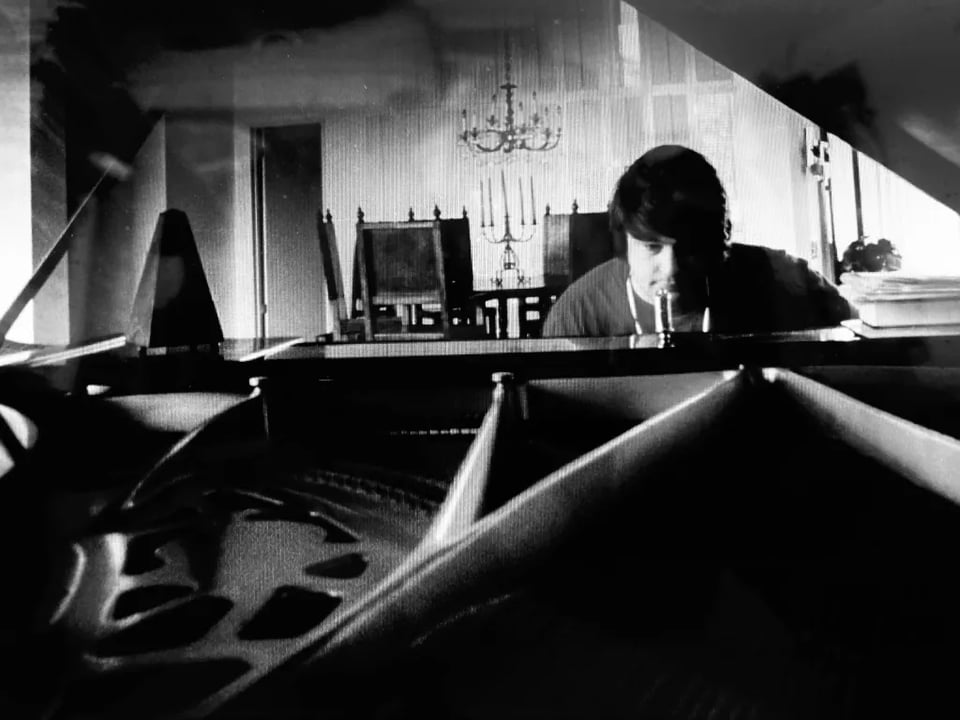Brian Wilson and the Nature of Legacy
A meditation on artists whose deaths have deeply affected me.
When I was in middle school, a teacher gave me a 1960s classroom turntable. After starting my collection with a copy of Abbey Road from Hot Topic, one of the first records I bought was The Beach Boys’ Pet Sounds. At first, I was not impressed. I couldn’t stand the use of falsetto, and I found the melancholic tone of many of the songs off-putting. Furthermore, the turntable had aged poorly, producing warped, distorted audio from its lone built-in speaker, and the platform and needle scuffed up every record I loaded onto it. Such defects made an already inaccessible album all the more difficult to love.

Nonetheless, I stuck with it, giving it listen after listen until all the elements came together for my young ears. I bought a stereo copy to complement my mono version, upgraded to a Crosley, and then an Audiotechnica with an accompanying vintage receiver. Additionally, to put the album into context, I read more about the broader musical landscape of the 1960s, the friendly competitiveness between artists, and the constant push for evolution and experimentation. Eventually, “Wouldn’t It Be Nice” went from the only song on the album I wholeheartedly enjoyed into the diving board for one of the most beloved records in my collection.
Brian Wilson, the man who spearheaded that tremendous musical project, died last week, and there’s a hole in my heart. Last year, news broke that Wilson’s mental health had deteriorated to the point of needing another conservatorship, and that any chance of him writing or performing music again was long gone. Reserving the bulk of my heartbreak for that moment somewhat softened the blow. Not every celebrity death comes with a year-long warning, though. Thus far, only three public figures have ever shaken me to the point of tears upon learning of their deaths: David Bowie, SOPHIE, and Paul Reubens.
Many great artists and performers have left behind monumental bodies of inspiring work in my lifetime. However, the loss of these specific people deeply affected me for various reasons. For example, David Bowie succumbed to cancer a mere two days after the release of his final album, Blackstar, in 2016. He kept his diagnosis private for years, and the two singles and their accompanying music videos leading up to the album’s release suggested a daring creative powerhouse still at his peak well into his 60s. One could justifiably rank Blackstar right alongside his 1970s masterpieces like Hunky Dory and Ziggy Stardust, much less any other contemporary release from younger musicians yet to solidify their legacies. Only two days out from releasing a zonked-out experimental rock, jazz, noise opus into the world, and gone.
After Bowie, few musicians could have taken the mantle as pop music’s most forward-thinking, trendsetting vanguard as deservedly as SOPHIE. I could not possibly overestimate the sheer impact that 2018’s Oil of Every Person’s Un-Insides had on my conception of what the very nature of electronic sound could be. Her abrasive metallic noise not only pushed experimental pop to its very limits, but it did so with a fearless, undeniable transfeminine perspective front and center, like the sweetest bubblegum with foil still wrapped around it. Ear-shattering synths orchestrated lyrics about immaterial boys and girls, shopping one’s face with surgery, and coming out despite the emotional toil it would take. Three years later, with a library of demos yet to coalesce into a full sophomore project, SOPHIE slipped off a rooftop while looking at the moon. The sheer loss of potential was devastating, and four years later, the rest of the music world has struggled to catch up to the future she built.
Lastly, I don’t think any public figure has been so wrongly vilified and then righteously vindicated in recent memory as Paul Reubens. After an adult theater sting operation in 1991 and then accusations of child pornography in 2002, Reubens received an outpouring of support from fans and friends in the entertainment industry who rightfully saw these charges as the unjust persecution of a man with a child-friendly image. I grew up mainlining several Pee-Wee Herman projects and only became aware of these scandals in adulthood. It didn't sour my opinion, but rather galvanized my admiration for a performer who wanted to keep his public and private lives separate, but was robbed of that control. Like Bowie, Reubens concealed diagnoses of leukemia and cancer until the end in 2023. If any of the interviews from his posthumous documentary are to be believed, he harbored doubts over the nature of his legacy. Yet, I think the shining light and joy he left behind ultimately won out.
What connects these artists for me, other than the sudden, shocking news of their deaths, is their proximity to queer identity. David Bowie flaunted an ever-shifting androgynous persona throughout his career. SOPHIE wore her trans identity on her sleeve and made it an inextricable aspect of her music after shedding her anonymity. Tragic revelations about Paul Reubens’ sexuality only found confirmation after his death, but even in life, he flouted traditional masculinity in favor of something more whimsical and colorful. Furthermore, one could argue that he was being punished just as much for being a closeted homosexual as for the charges made on paper. Other artists have died young in my lifetime, but I feel a unique kinship with these three, such that it felt like a brick in the foundation of my personhood had collapsed with them.

Last week, film critic Ty Burr posted a YouTube link to Brian Wilson’s piano demo of “Surf’s Up,” a recording I had returned to frequently throughout college. Listening to the soaring, haunting melody and oblique chord progressions again brought up a wellspring of emotion I hadn’t expected, and I felt ten years younger in an instant. The weeks I spent analyzing Pet Sounds and The Smile Sessions and reflecting on the numerous hardships Wilson faced in bringing that music to life came roaring back. “I heard the word / Wonderful thing / A children’s song.” Just typing that out makes my hands shake. When bodies fail, even permanently, the power of the art we create endures.